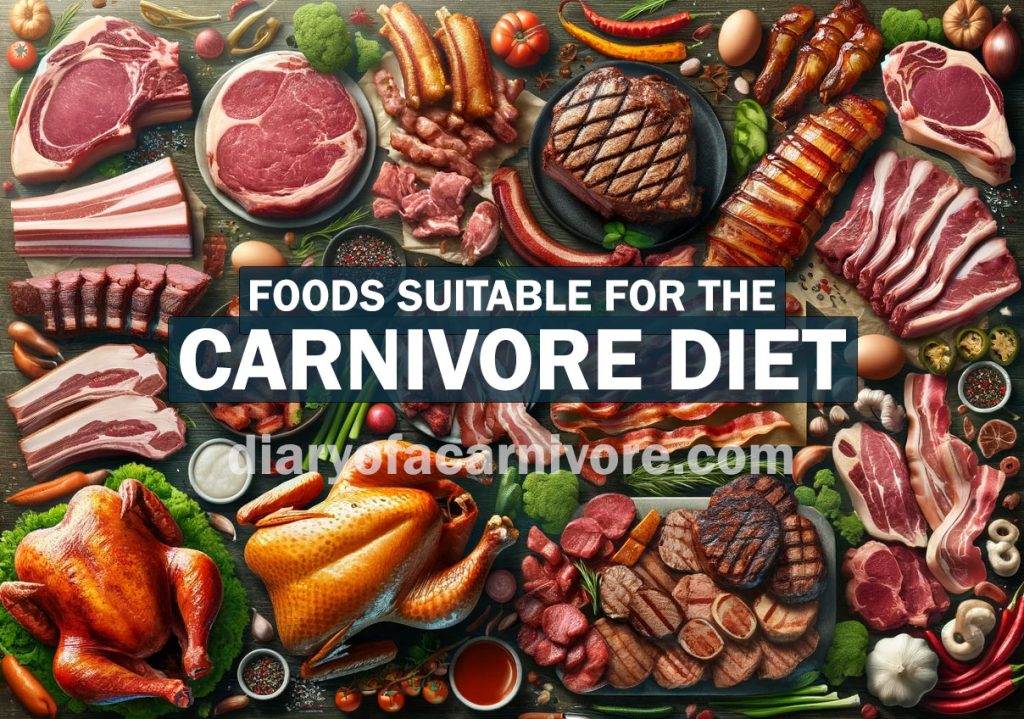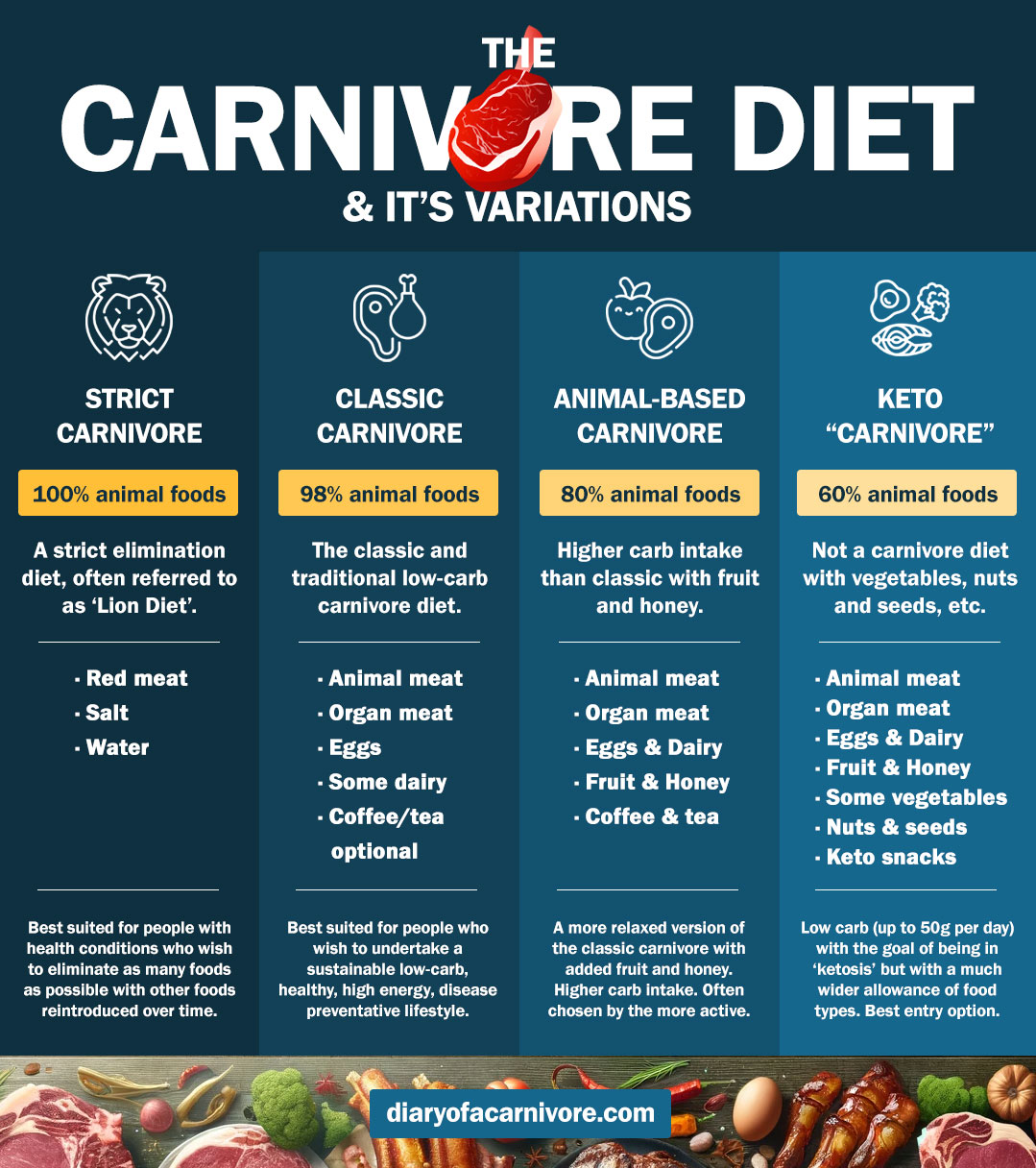




Below you can find out the typical nutritional facts for Duck.
If you have landed on this page, the chances are you have either;
The answer to your question is, Yes - Duck is suitable for the carnivore diet, providing a rich source of animal protein and fats.
The Carnivore Diet is arguably not a 'diet' as such, but a lifestyle - one that involves the consumption of animal-based products, with a focus on consuming animal-derived fats and proteins, over carbohydrates.
The Carnivore Diet is an 'elimination diet', where commonly known foods that may be irritable or inflammatory to many, are eliminated and the focus is primarily on the consumption of ruminant meat, with other meats, fish, eggs, dairy and even fruit and honey included in some variations of the diet.
With the focus on fats and proteins over carbohydrates, the carnivore diet is naturally high fat and low carbohydrate, meaning the body will transition into 'ketosis', a process that allows the body to switch to using fat as the primary fuel source (over glucose) which has many benefits, specifically fat loss and many types of healing (find out what the carnivore diet has healed for me).
The 'carnivore diet' is not a fixed diet for all. There are different variations of the diet that may be better suited to different people, usually depending on your own body as well as considerations such as levels of physical activity. Some may wish to go 'Strict Carnivore' which would consist of purely ruminent meat (usually beef), alongside salt and water, whereas others may choose 'Animal Based' which is primarily meat, eggs, dairy and other foods that come from animals, but with the addition of some non animal-based foods that are higher in carbohydrates such as honey and fruits.
Read more about the different variations of the carnivore diet.

I am a firm advocate for self-experimentation to see what works best for you as an individual. This way you know first hand what suits your body's needs.
For me, on my personal carnivore journey - I began with classic carnivore. I felt great and the improvement to my mental clarity (and many other benefits) was significant, however, I found that I lost weight and some muscle and struggled to maintain a weight I felt and looked better at.
I later introduced a little milk, some fruits such as dates and berries and also honey and maple syrup (in moderation) which helped with energy levels and facilitated the readdition and maintenance of the weight and muscle mass that I feel more comfortable at.
Bearing in mind that I do exercise 6 days per week, I believe that for me - the addition of a few higher-carb foods on the animal-based carnivore diet is beneficial.
Of course, some foods (highly processed, refined sugar-based foods) should be avoided if you are looking to optimise your health.
I think it is important to not be too rigid and do what is best for you, whilst using the above as a guide and the consideration of Duck is something you need to think about on a personal basis, depending on your goals.
Take a quiz to find out what version of the carnivore diet is likely best suited for you.
Duck meat, known for its rich flavor, is a nutritious choice for those following a carnivore diet. containing 0g of carbohydrates, 28g of fats and 19g of proteins (e). The quantity of fats, proteins and carbohydrates in Duck is something to consider when deciding what foods to consume on the carnivore diet.
Yes - Duck Duck is suitable for the carnivore diet, providing a rich source of animal protein and fats.
Duck contains around 0g of carbohydrates per 100g. The Carnivore Diet is naturally very low in carbohydrates. The amount of carbohydrates consumed are important to consider when undertaking a carnivore diet.
Duck contains around 28g of fat per 100g. Natural and healthy fats, derived only from animal products are an important aspect of a carnivore diet.
Duck contains around 19g of protein per 100g. Natural and healthy sources of protein derived only from animal products are a key element of the carnivore diet.
No - The 'Lion Diet' carnivore diet consists strictly of; Ruminant meats, salt, water, and ruminant meat fat for cooking.
No - The Strict Carnivore Diet consists strictly of; Ruminant meats, salt, water, and ruminant meat fat for cooking.
Yes - The Animal-Based Carnivore Diet consists of; All types of animal meats, bacon, seafood, organs, eggs, dairy (like milk, cheese and heavy cream), some fruit and honey, as well as coffee, tea, and some herbs and spices being optional. Animal-based carnivore is often higher in carbohydrates due to the fruits and honey.
Yes - Often referred to as 'Ketovore', the Keto Carnivore diet is not really a carnivore diet, however, it is still a low carbohydrate diet with animal fats and proteins being the primary sources of nutrition with fruits, vegetables, plant-based oils, nuts, and seeds also included.
Whilst strict and classic carnivore are always going to be zero-very low carbohydrates, non strict versions of the carnivore diet such as animal-based or keto carnivore (aka Ketovore) will likely involve the consumption of some carbohydrates, usually in the form of fruits, honey, dairy including mink and cheese, and even some plant based foods.
The amount of carbohydrates consumed on a daily basis can make the difference to whether you are in 'ketosis' or not which is something that needs to be considered depending on your goals and reasonings for taking this route.
Find out the benefits of being in ketosis.
Strict and Classic carnivore are naturally low-carb. Depending on your goals, you may wish to remain in 'ketosis', by keeping carbs at zero or very low, or you may wish to limit carbohydrates to below 40g per day which should keep you in ketosis also.
Find out more about the carnivore diet
Different types of carnivore diet
Beginners guide to starting a carnivore diet
You can find some other foods below or take a look at the full list of carnivore foods.